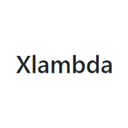Unlocking Your Desktop: The Best CLFSWM Alternatives for Enhanced Window Management
CLFSWM is a unique and powerful X11 window manager, meticulously crafted in Common Lisp. Its highly dynamic, tree-like structure, where windows can exist in multiple frames for varied views, offers an intriguing approach to desktop organization. However, its specific Lisp-based scripting and particular workflow might not suit every user's needs or preferences. If you're seeking a different approach to tiling, extensibility, or a window manager built with a different philosophy or language, exploring a CLFSWM alternative is a natural next step.
Top CLFSWM Alternatives
While CLFSWM offers a distinctive take on window management, many other robust and feature-rich options are available. Here's a look at some of the best alternatives that provide similar functionalities, diverse extensibility, and different underlying technologies, catering to a wider range of user preferences.

awesome
Awesome is a highly dynamic and extensible window manager developed in C and Lua. It's an excellent CLFSWM alternative for users seeking a tiling window manager with powerful customization capabilities through Lua scripting. As a Free and Open Source solution available on Linux and BSD, it offers robust X server integration and a flexible approach to managing your desktop space.

Xmonad
Xmonad is a dynamically tiling X11 window manager renowned for being written and configured in Haskell. If you appreciate the programmatic control of CLFSWM but prefer a different language paradigm, Xmonad is a compelling CLFSWM alternative. It's Free, Open Source, and available on Mac and Linux, offering an extensible window manager with excellent tiling capabilities and deep X server integration, minimizing time spent aligning windows.

qtile
Qtile is a full-featured, hackable tiling window manager written entirely in Python. For those who find CLFSWM's Lisp intimidating or prefer Python for scripting, Qtile is a superb CLFSWM alternative. It's simple, small, and highly extensible, allowing users to easily write their own layouts and widgets. As a Free and Open Source option for Linux, it boasts a powerful command-line interface, robust scripting capabilities, and excellent tiling.

Sawfish
Sawfish is an extensible window manager that, like CLFSWM, utilizes a Lisp-based scripting language. This makes it an ideal CLFSWM alternative for users who appreciate the power of Lisp for customization but might prefer a different approach to window management policy. It's Free and Open Source for Linux, aiming for minimal policy while providing robust scripting features and acting as a foundational desktop environment component.

Xlambda
Xlambda is an X window manager that offers extensibility through Guile. If CLFSWM's Common Lisp environment isn't your preference but you still desire a powerful, Lisp-family scripting language for your window manager, Xlambda presents a viable CLFSWM alternative. It is Free and Open Source, available for Linux, and provides excellent extensibility via its plugin and extension system.

Subtle window manager
Subtle is a manual tiling window manager that takes a unique approach to tiling by dividing the screen into a grid, rather than relying on predefined layouts. This makes it an interesting CLFSWM alternative for users who prefer a more hands-on, grid-based approach to window organization. It's Free and Open Source for Linux, offering strong extensibility through plugins and scripting capabilities for fine-tuned control.

StumpWM
StumpWM is a tiling, keyboard-driven X11 Window Manager also written and scriptable in Common Lisp, making it perhaps the most direct CLFSWM alternative for users who want to stick with a Lisp-based environment. It strives for visual minimalism while being highly customizable. As a Free and Open Source solution for Linux, StumpWM offers excellent extensible window management, powerful scripting, and robust tiling layouts.
The world of X11 window managers is rich and diverse, offering a multitude of options beyond CLFSWM. Whether you prioritize a specific programming language for extensibility, a particular tiling philosophy, or a different set of features, there's likely a perfect fit for your desktop workflow. Explore these CLFSWM alternative options to find the one that best empowers your productivity and personalizes your computing experience.